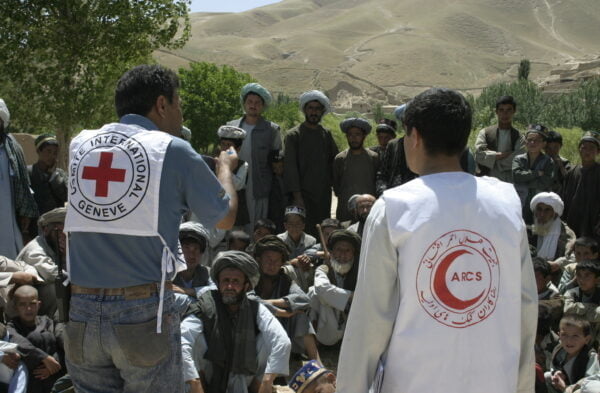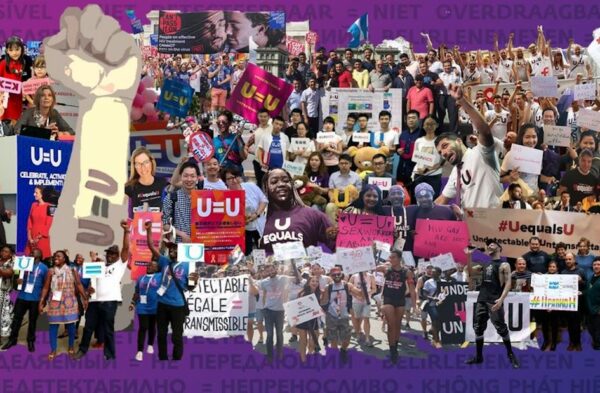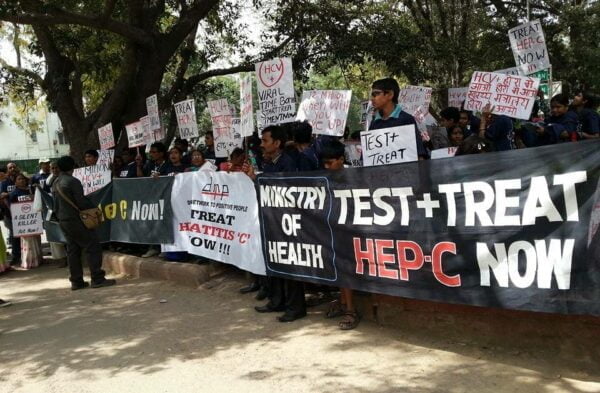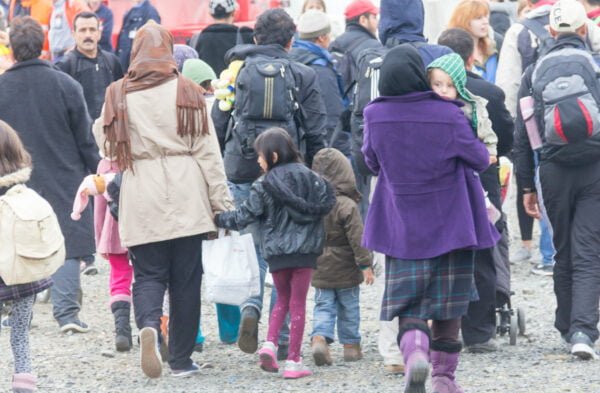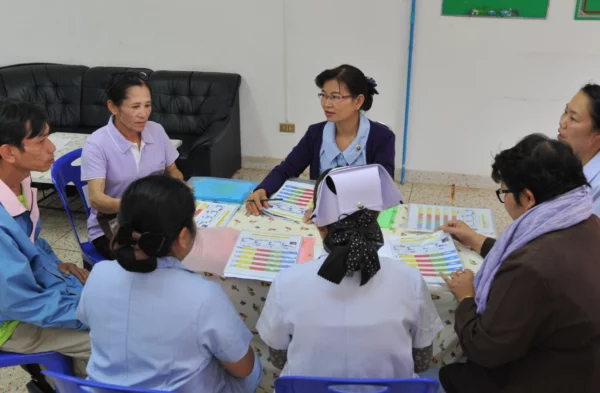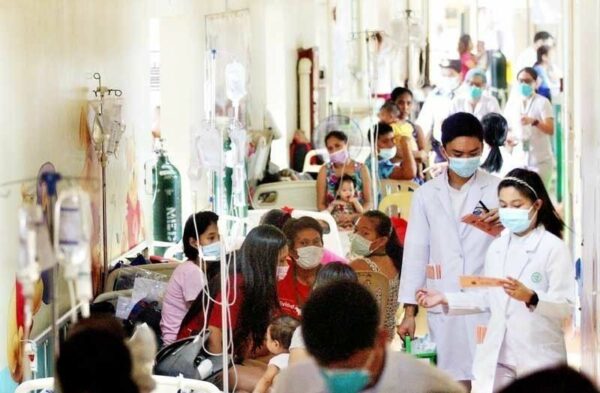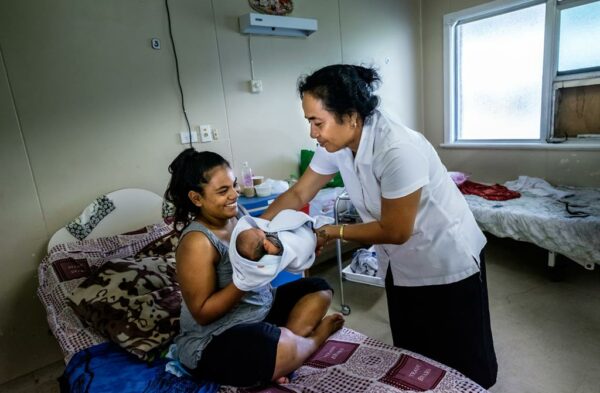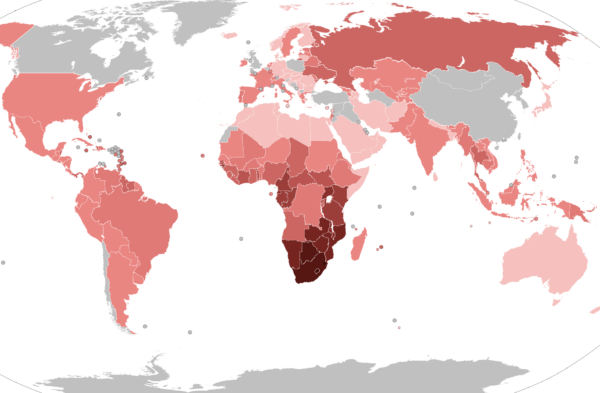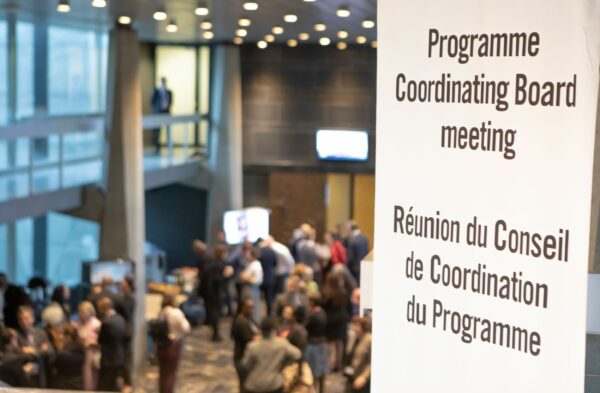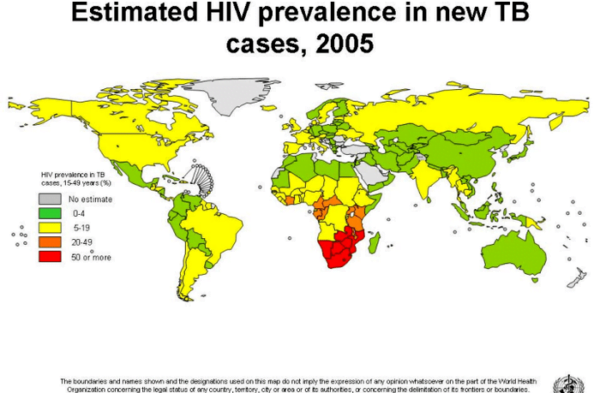NGO Report of the 55th | 22 November 2024
2024 NGO Report: “Breaking the chains: supporting community leadership and human rights for a sustainable HIV response”
The NGO Delegation’s Report to the PCB will focus on the importance of involving communities – key and marginalized populations, people living with HIV, and other communities hard hit by the AIDS pandemic – in the HIV response. A topic that has long been discussed by multilateral organizations, donors, national governments, and of course, communities themselves.
NGO Report of the 53rd | 30 June 2023
People living with HIV during humanitarian emergencies
This year’s report to the PCB will focus on ‘People living with HIV during humanitarian emergencies’. The last couple of years have seen several different humanitarian emergencies arising from various parts of the world. Some of the most notable ones include the Russo-Ukrainian War, the ongoing conflict in Sudan, and the catastrophic hunger crisis in Somalia. These crises create gaps in the global response to HIV/AIDS for people living with HIV. You can now download and read the report.
NGO Report of the 51st | 22 November 2022
Undetectable = Untransmittable = Universal Access (U=U=U): A foundational, community-led global HIV health equity strategy
The 2022 NGO report focuses on the untapped potential of U=U as a community-led, HIV health equity strategy to improve the health and quality of life of people living with HIV and contribute to the global treatment targets by advancing universal access to antiretroviral therapy, diagnostics and sustained care, while reducing HIV transmission.
NGO Report of the 49th | 23 November 2021
Left Out: The HIV Community and Societal Enablers in the HIV response
The 2021 NGO Report focuses on the importance of strengthening societal enablers for the HIV response. The Global AIDS Strategy recognizes that HIV services on their own will not be sufficient to reach the 2030 target without concerted efforts to address the social and structural factors that increase HIV vulnerability and diminish the ability of marginalized populations to access essential services.
NGO Report of the 47th | 16 November 2020
Engagement, Evidence and Impact: 25 years of the NGO Delegation to the UNAIDS PCB
This 2020 NGO Report marks the 25th anniversary of the NGO Delegation to the UNAIDS PCB. It takes stock of the engagement, evidence, and impact of the Delegation to date, highlighting examples of key actions and results. It also makes recommendations for the future, in a context where responses to HIV by key populations, for people living with HIV,
women, young people, and migrants (referred to in this report as “communities and civil society”) are more vital than ever. The report notes with deep concern that the political space, human rights, financial viability, and the very existence of those organizations and networks are under threat.
NGO Report of the 45th | 15 December 2019
If it is to be truly universal, Why universal health coverage will not succeed without people living with HIV and other key populations, women, and young people
The 2019 NGO Report builds on the foundations laid thus far for UHC while looking ahead to its next phase, when the Political Declaration will be operationalized. During that phase, countries will contribute to achieving Sustainable Development Goal (SDG) target 3.32 and several other targets by accelerating the development and implementation of UHC plans, packages,Continue reading “If it is to be truly universal, Why universal health coverage will not succeed without people living with HIV and other key populations, women, and young people”
NGO Report of the 43rd | 13 January 2019
People on the move – key to ending AIDS
The 2018 NGO Report to PCB is intended to help renew and focus the dialogue around people on the move so that the 2030 target of ending AIDS as a public health threat can be achieved. Discussion and dialogue around people on the move have occurred at the United Nations (UN) since at least 1951, when the Convention Relating to the Status of
Refugees was adopted, and the forerunner of the International Organization for Migration (IOM), the Intergovernmental Committee for European Migration (ICEM) was established to help resettle people displaced by World War II. Fifty years later, the link between migration, population mobility, and HIV surfaced in the 2001 UN General Assembly Declaration of Commitment on HIV/AIDS. In 2016, the IOM became a related organization of the UN. UNAIDS and IOM first entered into a Cooperation Framework in 1999, which was later revised in 2002 and in 2011. In 2017, IOM and UNAIDS renewed a General Cooperation Agreement to enhance dialogue and cooperation to combine and coordinate their efforts.
NGO Report of the 41st | 11 January 2018
The UNAIDS we need must leave no one behind: getting to zero includes all of us (the 10–10–10)
NGO Report of the 39th | 22 December 2016
An unlikely ending: ending AIDS by 2030 without sustainable funding for the community-led response
NGO Report of the 38th | 10 June 2016
Sexual and Reproductive Health and Rights of People Most Affected by HIV: The Right to Development
NGO Report of the 35th | 14 November 2014
When Rights Cause Wrongs: Addressing Intellectual Property Barriers to Ensure Access to Treatment for all People Living with HIV
NGO Report of the 33rd | 6 December 2013
The equity deficit: unequal and unfair access to HIV treatment, care and support for key affected communities
NGO Report of the 30th | 1 January 2012
Civil Society in the HIV Response: Urging UNAIDS Action in the HIV Funding Crisis
NGO Report of the 29th | 1 January 2011
Voices from the field: how laws and policies affect HIV responses
NGO Report of the 26th | 27 April 2010
Stigma and Discrimination: A Hindrance to Effective HIV Responses
NGO Report of the 24th | 21 April 2009
Survey around barriers to achieving universal access
NGO Report of the 22nd | 11 March 2008
Meeting Universal Access Commitments: A Civil Society Perspective
NGO Report of the 20th | 2 May 2007
Universal access: more prevention and more treatment
NGO Report of the 18th | 10 May 2006
Global Report on HIV/AIDS
NGO Report of the 15th | 14 June 2004
2003-2004 NGO Report to UNAIDS Programme Coordinating Board on the State of the HIV/AIDS Pandemic
NGO Report of the 9th | 31 May 2000
The Greater Involvement of People Infected and Affected by HIV/AIDS
The central aim of the GIPA initiative was the greater involvement of PLWHA. However, in practice this has lead to problems of “involvement in what?” and how to achieve this involvement. Clearly, there is a need to move beyond GIPA as discreet initiatives towards a situation where people with HIV/AIDS are consistently involved at all levels. However, this can only be achieved if those with power acknowledge and accept that the involvement of PLWHA is a useful strategy to follow.
NGO Report of the 17th | 14 June 1990


